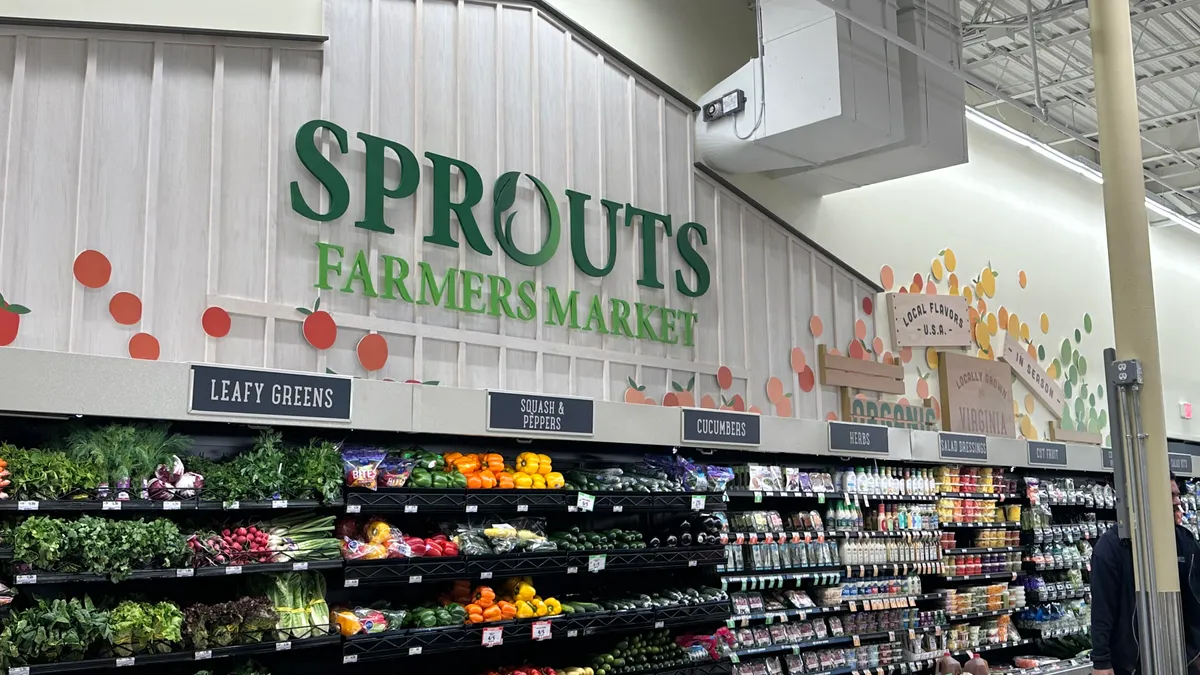Dive Brief:
- Sprouts Farmers Market on Tuesday reported comparable-store sales growth of 3.2% and net sales growth of 6% to $1.7 billion during its second quarter, which ended July 2.
- The specialty grocer’s private label sales as well as its e-commerce sales each drove the positive earnings results amounting to 20% and 12.1% of total sales, respectively.
- Sprouts noted it has managed to offset the struggle of rising labor costs by investing more into a store bonus program, offering additional labor hours and implementing self-checkout stations.
Dive Insight:
The grocer’s comparable-store sales growth surpassed last quarter’s growth of 3.1%, which at the time was at the highest level since 2020, while net sales’ total and growth percentages remained the same compared to the first quarter.
Sprouts’ adjusted diluted earnings per share during the second quarter rose to 71 cents, a 25% rise compared to the same quarter last year.
During the Tuesday earnings call, Sprouts Chief Financial Officer Chip Molloy, who yesterday announced his plans to retire, pointed to categories with the most differentiation as the grocer’s strongest performing ones, including bakery, dairy and proteins. Private label sales grew 12%, representing 20% of total sales.
Sprouts’ partnership with DoorDash, which was announced in November 2022, is seeing continued benefits as e-commerce sales grew by 16% during the quarter. Sales and customer growth occurred in all three channels — DoorDash, Instacart and shop.sprouts.com. CEO Jack Sinclair noted that over the last few quarters, Sprouts has enhanced its e-commerce platforms with site remodels, optimized search functionality, more emphasis on personalization, a menu redesign and the launch of a shoppable flyer.
“Almost 80% of our media is now spent on digital aimed at driving more shopping occasions with our target customers, and supported by data-driven plans,” Sinclair said.
He added: “Our new creative approach is designed to work in tandem with our digital media plan that focuses on each stage of the customer journey.”
Though rising labor costs continue to be a battle for the grocer, especially as it continues to open new stores, Molloy stated labor cost growth is beginning to decelerate. “I think going into next year, we’ll be in a better place that we can manage that,” he said during the call.
Sprouts continues to hint towards building “a more robust and relevant” loyalty program, with Sinclair telling investors it is a “multi-year journey” and the grocer is still in “the test and learn phase with our personalization efforts.”
The specialty grocer is still on track to open at least 30 new locations by the end of 2023 and opened six new stores during this past quarter.













